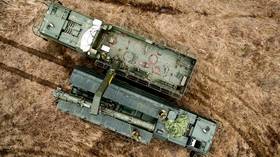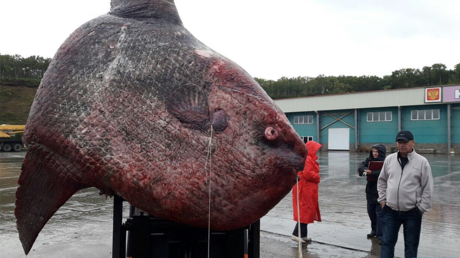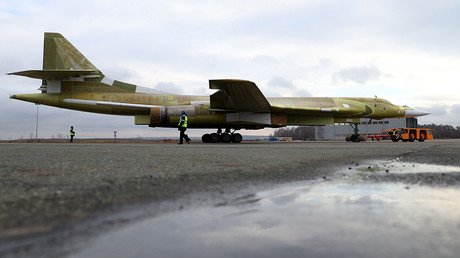US & Russia trade blame on INF as last-ditch talks to save nuclear treaty fail in Geneva

Washington is still on course to unilaterally quit the landmark 1987 Intermediate-Range Nuclear Forces Treaty (INF) as early as next month, rejecting new talks after negotiations in Switzerland brought no breakthrough.
“It is clear that Russia continues to violate the treaty in a substantial way,” US Under Secretary for Arms Control and International Security Andrea Thompson said at the press briefing that followed Tuesday’s discussions, which she called “disappointing.”
Deputy Foreign Minister Sergey Ryabkov, who led a sizeable Russian delegation comprising senior officials from all relevant departments, said that US representatives arrived in Geneva with their minds made up, with a position that was both “uncompromising and lacking in specifics.”
(1 of 3) Today we held talks w/ a Russian delegation on the Intermediate-Range Nuclear Forces Treaty. In doing so, we are upholding @SecPompeo’s commitment to continue to talk with Russian officials to urge #Russia to return to full and verifiable compliance with the Treaty...
— U/S of State Andrea Thompson (@UnderSecT) January 15, 2019
(2 of 3)... before the 60-day deadline announced on December 4. The meeting was disappointing as it is clear Russia continues to be in material breach of the Treaty and did not come prepared to explain how it plans to return to full and verifiable compliance.
— U/S of State Andrea Thompson (@UnderSecT) January 15, 2019
(3 of 3) Our message was clear: #Russia must destroy its noncompliant missile system. The U.S. delegation will brief allies and partners, including at @NATO tomorrow, on these discussions.
— U/S of State Andrea Thompson (@UnderSecT) January 15, 2019
“We believe that Russia is strictly complying with the INF Treaty, while the United States is exacerbating the situation,” Ryabkov told reporters.
After our contact in Geneva, we see a clear intent to demolish the agreement.
The current White House administration says that Moscow’s 9М729 rocket violates the terms of the agreement, signed by Mikhail Gorbachev and Ronald Reagan as a key step to ending the Cold War. The treaty bans land-launched nuclear and conventional missiles with a range between 500km and 5,500km.
Ryabkov said Russian negotiators arrived in Geneva with “a range of measures designed to remove all suspicions” about the 9M729, which Moscow says has a range under the minimum threshold written into the treaty.
In return, Moscow would request more openness from the Pentagon over its target and strike drones, as well the potential of the “defensive” projectiles located in its Eastern European missile shield bases.
Also on rt.com US confirms pullout from INF treaty, Moscow will respond if missiles placed in Europe – deputy FM“However much the other side attempts to assign violations to us, its breakdown will be wholly Washington’s responsibility,” he concluded.
After decades of mutual accusations, the writing appeared to be on the wall for the INF Treaty in December, when the US issued Moscow with a 60-day ultimatum demanding that it stop violating its conditions – something that it never acknowledged in the first place.
There has been widespread speculation that, regardless of compliance issues, the Pentagon feels hamstrung by the terms of the treaty, which does not bind countries whose military capability has risen in the past three decades, particularly China.
Russia says that – rather than dropping the INF, which it says could lead to a new spiral of tensions – it is ready to begin talks on expanding the treaty to add China, Iran, North Korea and other states thought to possess short- and intermediate-range missiles.
Think your friends would be interested? Share this story!














